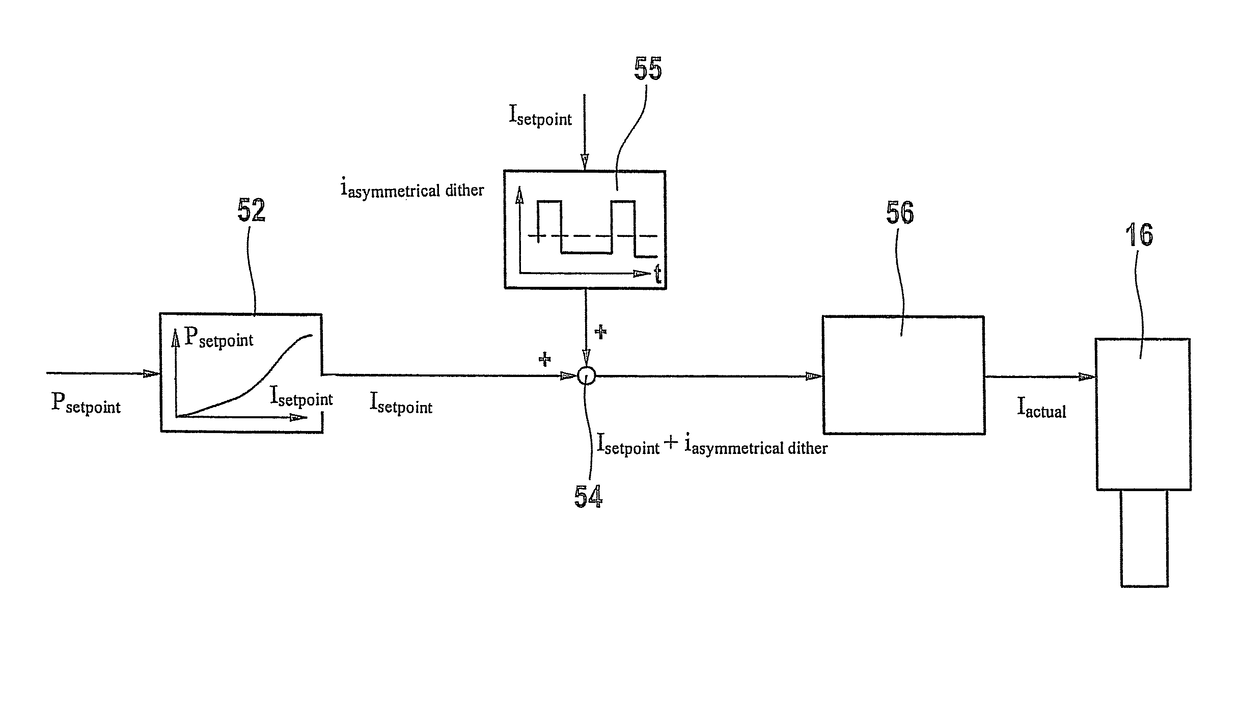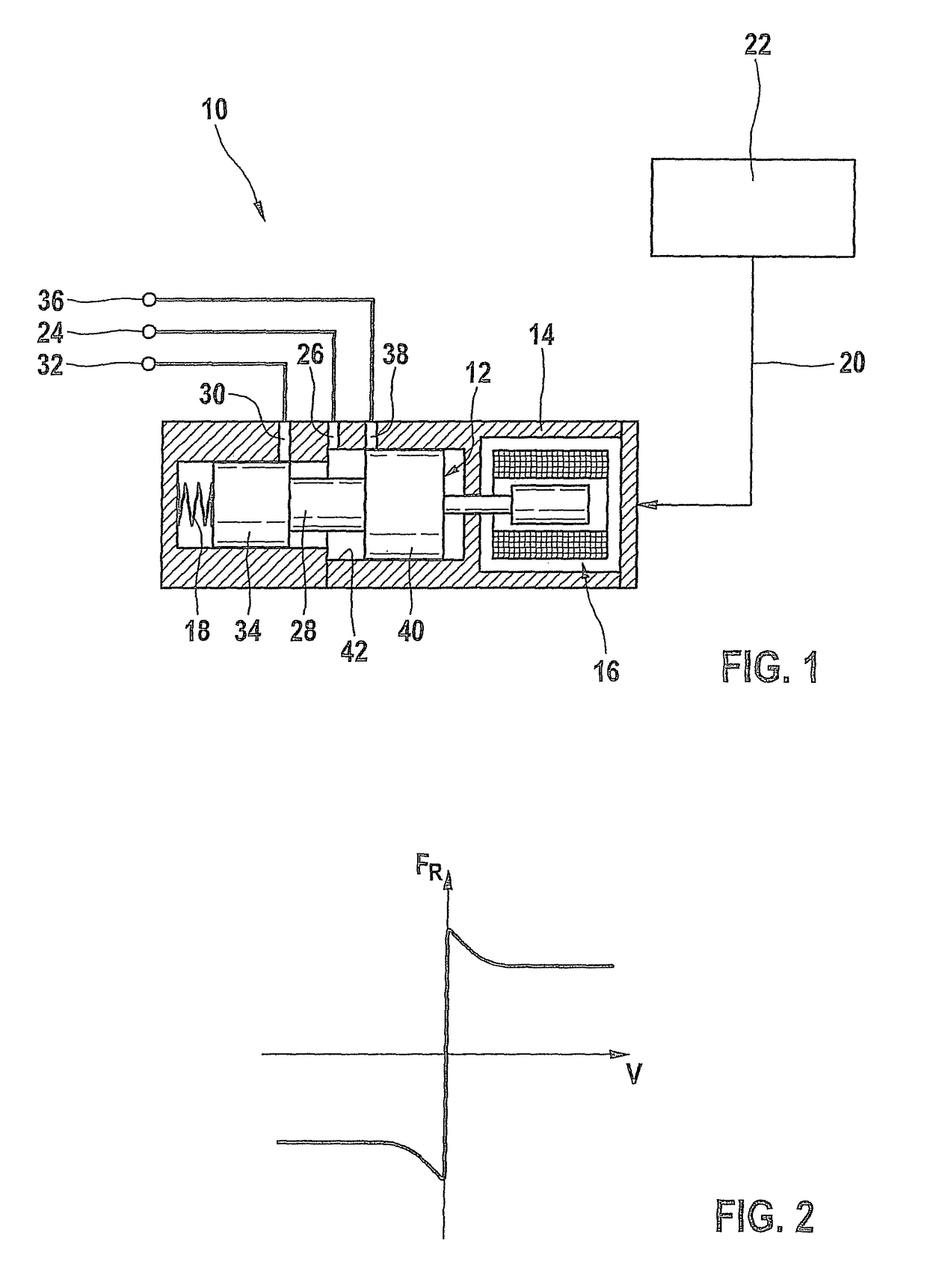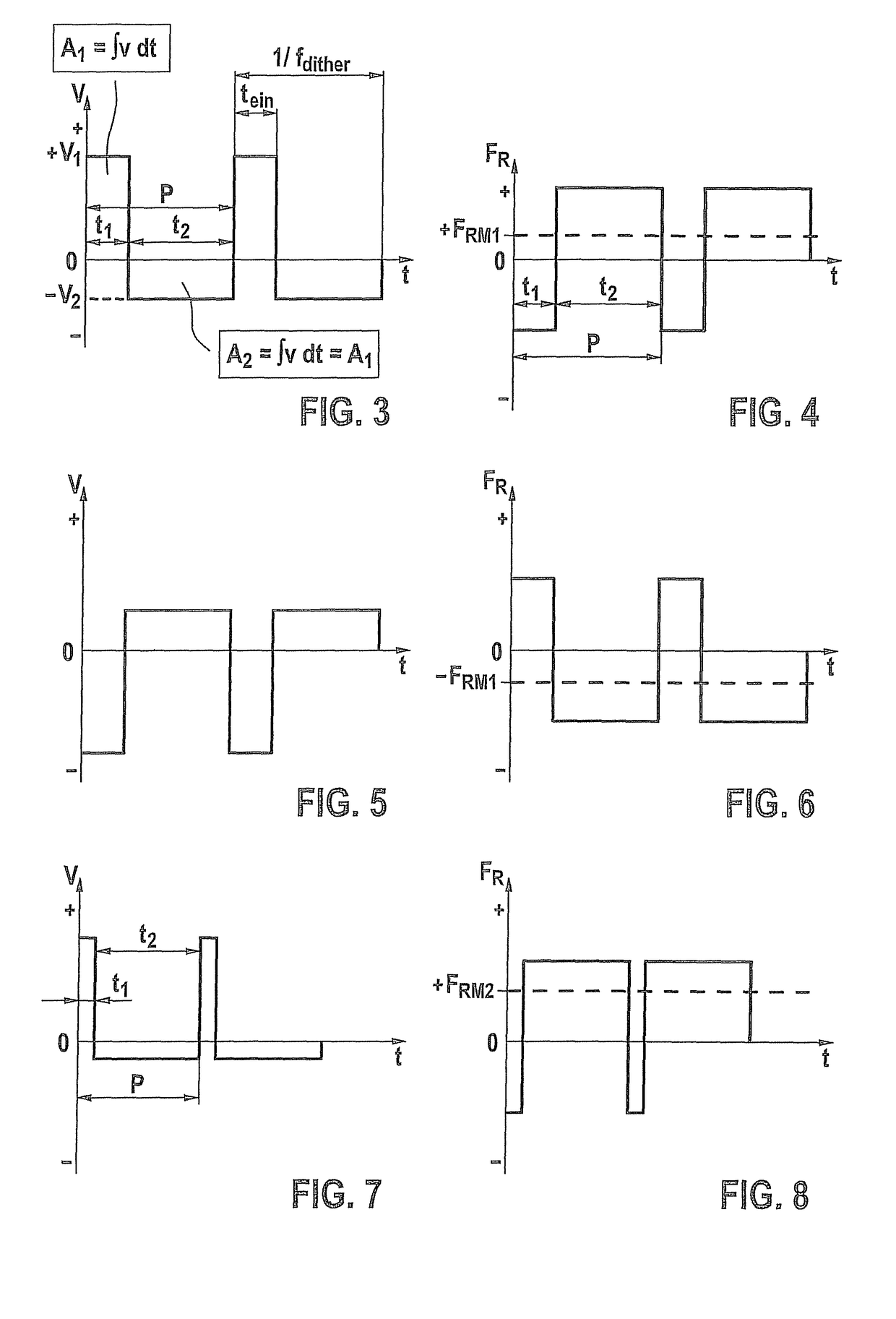Method for operating a mechanical system, particularly a proportioning valve
a mechanical system and proportioning valve technology, applied in the direction of instruments, static/dynamic balance measurement, gearing, etc., can solve problems such as stick-slip behavior
- Summary
- Abstract
- Description
- Claims
- Application Information
AI Technical Summary
Benefits of technology
Problems solved by technology
Method used
Image
Examples
Embodiment Construction
[0030]In FIG. 1, reference numeral 10 denotes a mechanical system as a whole that is developed as a proportioning valve. It includes a movable component in the form of a stepped valve slide 12, which is guided in a housing 14 in a sliding fit and is thus movable relative to housing 14 under friction. Proportioning valve 10 also includes an electromagnetic operating device 16, which acts upon valve slide 12 in the one direction, and a valve spring 18, which acts upon valve slide 12 in the other direction. Electromagnetic operating device 16 is controlled by a control signal 20, which is provided by an output stage (not shown) of a control and regulating device 22.
[0031]Proportioning valve 10, in this instance, is a pressure-regulating valve. Here, it regulates the pressure at a regulating connection 24, which is connected to a housing duct 26 that is located approximately at the level of a middle section 28 of valve slide 12, that has a comparatively small diameter. A second housing ...
PUM
 Login to View More
Login to View More Abstract
Description
Claims
Application Information
 Login to View More
Login to View More - R&D
- Intellectual Property
- Life Sciences
- Materials
- Tech Scout
- Unparalleled Data Quality
- Higher Quality Content
- 60% Fewer Hallucinations
Browse by: Latest US Patents, China's latest patents, Technical Efficacy Thesaurus, Application Domain, Technology Topic, Popular Technical Reports.
© 2025 PatSnap. All rights reserved.Legal|Privacy policy|Modern Slavery Act Transparency Statement|Sitemap|About US| Contact US: help@patsnap.com



